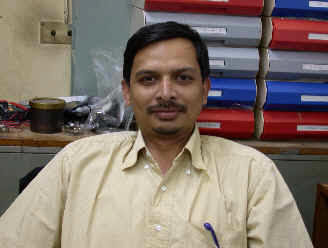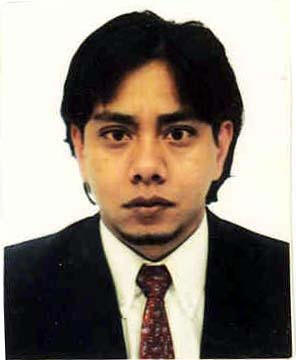| Mahendra Sonawane Tata Institute of Fundamental Research Mumbai |
M. Krishnamurthy Dept. of Nuclear & Atomic Physics Tata Institute of Fundamental Research Mumbai |
 |
||
| Prof. Christiane
Nuesslein-Volhard MPI for Developmental Biology |
Prof. Joachim
Ullrich MPI for Nuclear Physics, Heidelberg |
|||
| Developmental Biology, Genetics, 2007-11 | Laser Science, 2007-11 | |||
| Sudipto Roy Barman UGC-DAE Consortium for Scientific Research, Indore |
Rajendra Singh Department of Physics Indian Institute of Technology Delhi New Delhi |
|||
| Prof. Gerard Meijer Fritz Haber Institute, Berlin |
Prof. Ulrich Gösele MPI of Microstructure Physics |
|||
| Condensed Matter Physics, 2007-11 | Solid State Physics, 2007-11 | |||
|
|
||||
 |
Bhola R. Gurjar Indian Institute of Technology Roorkee Roorkee |
Ashok Giri National Chemical Laboratory, Pune |
||
| Prof. Jos Lelieveld
MPI for Chemistry, Mainz |
Prof. Ian Baldwin
MPI for Chemical Ecology, Jena |
|||
| Megacities and Global change, 2006-10 | Developing a pest protection strategy for chickpea based on proteinase inhibitor defenses, 2006-10 | |||
|
|
||||
 |
Meheboob Alam J. Nehru Center for Advanced Sciences Bangalore |
Tanusri
Saha-Dasgupta S.N. Bose National Center for Basic Sciences Kolkatta |
 |
|
| Pro. Bo Barker
Joergensen MPI for Marine Microbiology, Bremen |
Prof. O. Krogh
Andersen MPI for Solid State Research, Stuttgart |
|||
| Topography formation, 2006-10 | Unravelling chemical bonding and physical properties of novel materials using Wannier-like functions, 2005-09 | |||
 |
Naveen Garg Dept. of Computer Science & Engineering Indian Institute of Technology Delhi New Delhi |
Amol Dighe Dept. of Theoretical Physics Tata Institute of Fundamental Research Mumbai |
 |
|
| Prof Kurt Mehlhorn
MPI for Informatik, Saarbruecken |
Prof. Wolfgang
Hollik MPI for Physics, München |
|||
| Approximation Algorithms, 2005-09 | Neutrino Physics , 2005-09 | |||